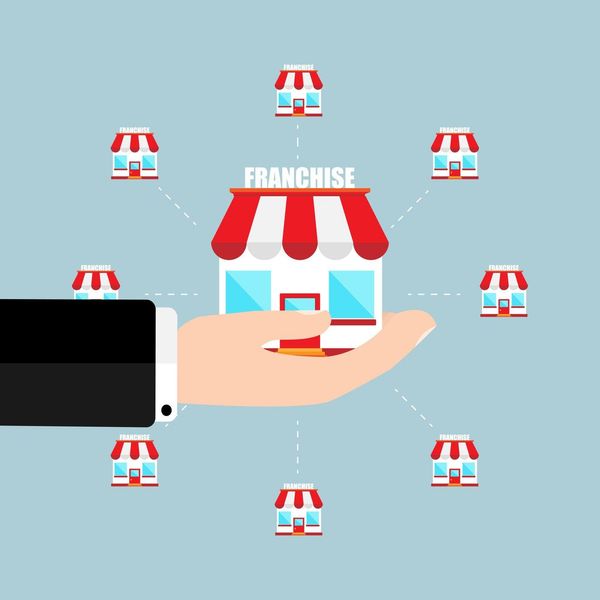
8 Common Franchise Myths and Realities
When it comes to the franchising industry, some beliefs are touted so often that they have become widely accepted as facts. In reality, however, they’re common misconceptions about the industry and can be dangerously misleading—especially for those who fail to do further research.
With help from franchise consultants Tom Scarda and Joel Libava, we get to the bottom of eight of the most common franchise myths and are setting the record straight about them once and for all.
Buying a franchise: 8 franchise myths
Franchise myth #1: It’s best to buy a franchise with a well-known brand name.
“Although a household name will draw customers in, it does not guarantee success,” says Scarda. Equally, if not more, important than the power of the brand, he says, are factors such as the hours of operation, the number and type of staff required, the daily tasks involved, the type of investment required and the return on investment.
“Forget the brand at first,” agrees Libava. “It’s more about fit than it is about brand, although the brand is important. Personally, I’d rather buy a franchise that’s not really that well-known but is really a great fit for me, than buy a heavy-duty brand-name franchise that is a poor fit, and one I can’t wait to sell or close because I can’t stand the work.”
Franchise myth #2: Buying a hot franchise that’s in a growth spurt is a good opportunity.
“On a daily basis, people ask me what the hot franchise is right now,” says Scarda. “To me, it’s like asking who is the best-looking actor or actress today. Beauty is in the eye of the beholder and is subjective. When looking at franchises, take note of what it will be like to live with that business every day for years to come. The franchise that looks fantastic from the outside may be a bear to live with.”
“Sometimes, ‘hot’ franchises can get cold really fast,” agrees Libava. “It’s kind of like a hot stock tip—by the time you’re ‘tipped,’ it’s too late. Folks should invest in a franchise that closely matches their skill sets, budget, and lifestyle wants and needs.”
Franchise myth #3: Food franchises are great investments because they are recession resistant—after all, everyone has to eat.
“It’s true—everyone does have to eat, and that’s why food business are everywhere,” says Scarda. “However, because food is everywhere, the competition is steep, so the returns and margins are tight. Again, do the numbers and have an open mind. Compare and contrast your favorite food business to any other business that is not a food concept in terms of numbers and the lifestyle the industries offer.”
Franchise myth #4: A “turnkey” business means that all you have to do is “turn the key.”
“Untrue,” says Libava. “One must be willing to work really, really hard to get the business up and running, and to get it profitable. The franchisor is not alongside [you] every day.”
More articles from AllBusiness.com:
- Five Reasons Why Franchises Fail
- 3 Biggest Challenges Every Franchisee Faces—And How to Overcome Them
- How Long Does It Really Take to Open a Franchise?
- 10 Signs of a Great Franchise Opportunity
- 40 Reasons to Buy a Franchise
Franchise myth #5: Being in a franchise requires long hours and a lot of money.
“This is not always true,” says Scarda. “With more than 3,000 franchises in 75 industries, there are many that are well under $100,000 all-in investment and entail operating during regular business hours with weekends off. These are typically in the service arena and operate in the business-to-business environment.”
Franchise myth #6: If you invest in a franchise, you have a high chance of succeeding.
“It amazes me how many franchise websites are still touting really old franchise success rates,” says Libava. “Folks need to realize that they can fail in a franchise business, too. There are absolutely no guarantees.”
Franchise myth #7: My town has no widget franchise. There’s no widget for 30 miles in each direction. If I open one, it will be successful because there is no competition.
For a novice businessperson, this seems like an ideal situation but, in reality, it could mean disaster ahead. “There may be a great reason why there’s no widget franchise in your area,” says Scarda. “Perhaps the demographic or the cost of doing business in the area wouldn’t support the operation.”
Many times having no competition is a red flag. “On the other hand, perhaps the widget is needed in your town and it will perform greatly,” says Scarda. “However, do you want to be married to that particular widget?”
Franchise myth #8: Buy a franchise that speaks to your passion.
“It’s true you should love what you do, especially in your second career, which is what a franchise is for the majority of buyers,” says Scarda. “If your passion is about giving back to the community, that’s great, and you can find franchises that will enable you to do that.
However, I caution [against] buying a business because it’s your hobby. For instance, if you love golf, don’t buy a golf franchise. I can almost guarantee that you’ll hate golf within six months if you’re trying to pay your mortgage with it. Instead, find a franchise that will afford you the opportunity to play golf to your heart’s content. I would count that as being successful.”
RELATED: Buying a Franchise vs. an Independent Business: What Are the Pros and Cons?
About the Author
Sara Wilson is a freelance writer who specializes in issues related to small businesses. Contact her at wilson.sara@gmail.com.



